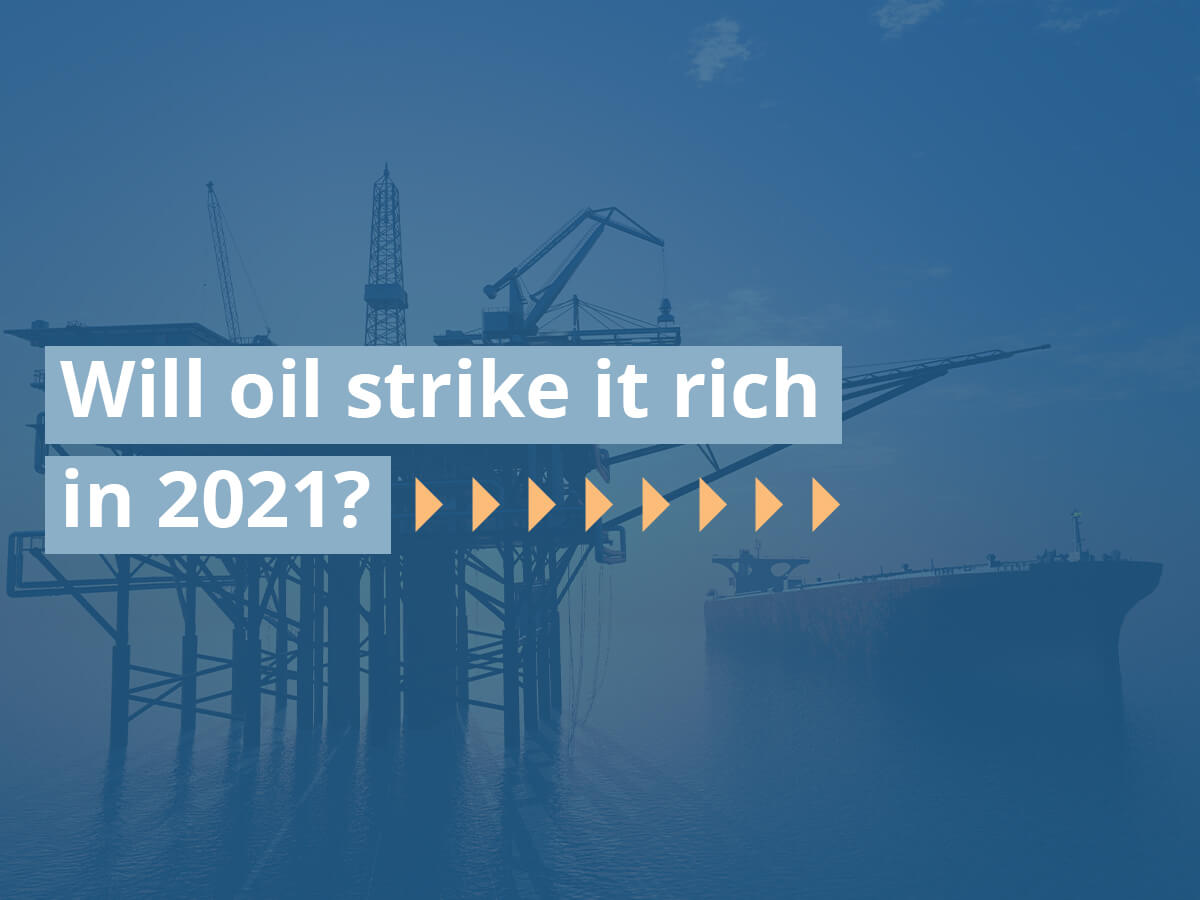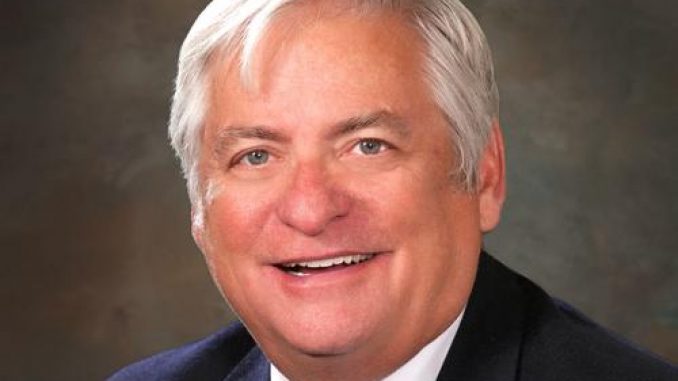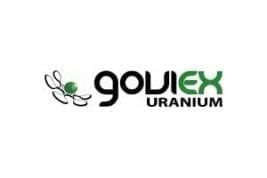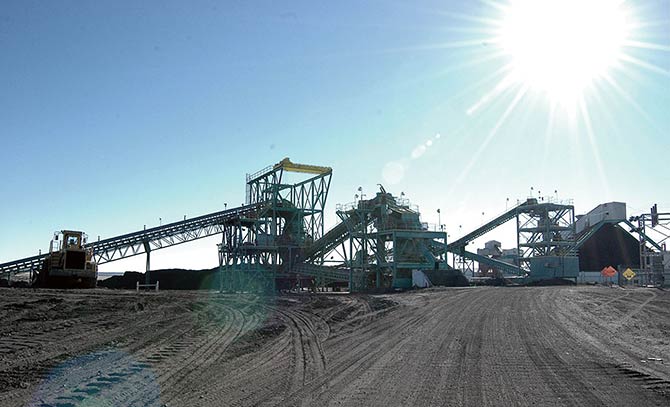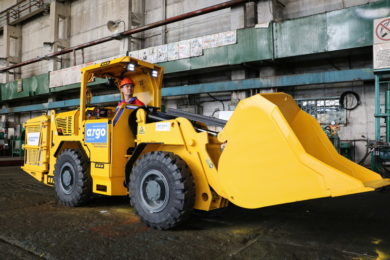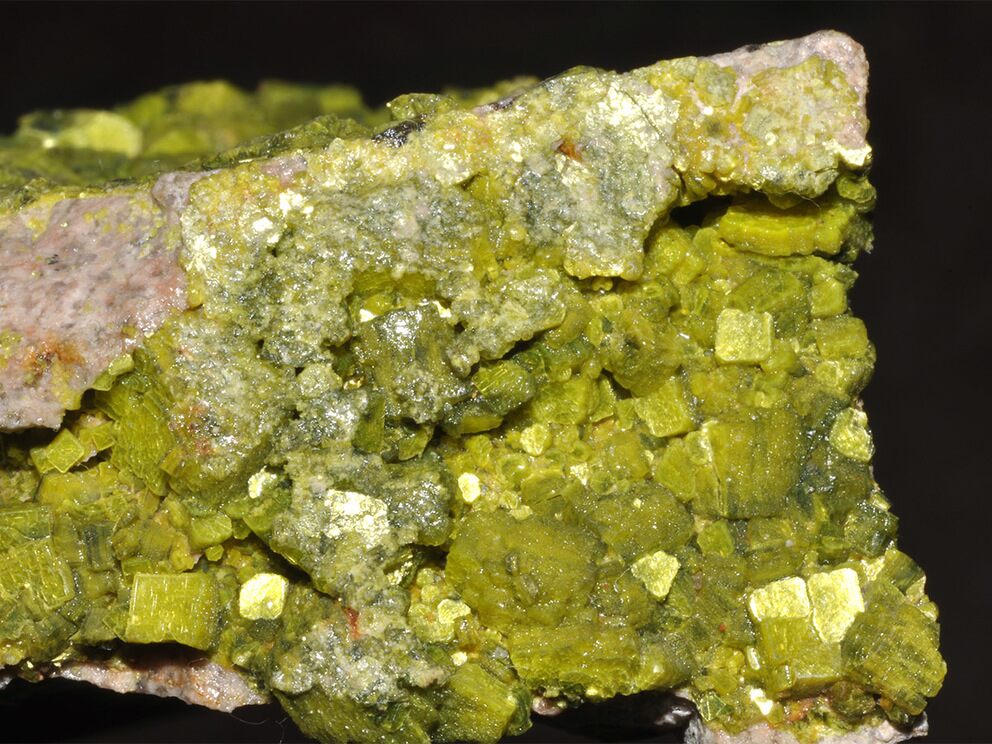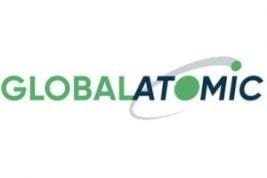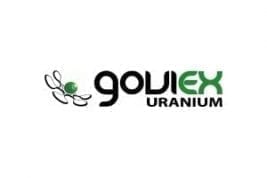“ Uranium Market Report Coverage: Key Growth Factors & Challenges, Segmentation & Regional Outlook, Top Industry Trends & Opportunities, Competition Analysis, COVID-19 Impact Analysis & Projected Recovery, and Market Sizing & Forecast.
A detailed report on Global Uranium market providing a complete information on the current market situation and offering robust insights about the potential size, volume, and dynamics of the market during the forecast period, 2021-2027. The research study offers complete analysis of critical aspects of the global Uranium market, including competition, segmentation, geographical progress, manufacturing cost analysis, and price structure. We have provided CAGR , value, volume, sales, production, revenue, and other estimations for the global as well as regional markets.
Major Key players profiled in the report include: Sinosteel, CNNC, Sinohydro, Jinduicheng Molybdenum, JiangXi Copper Corporation, Cameco, Areva, BHP Billiton, Kazatomprom, APM3, ERA, AtomRedMetZoloto?ARMZ?, Paladin, Navoi, Rio Tinto Group and More…
Download Free Sample PDF […]
Category: Uranium
Plateau Energy Metals Extends Uranium Trend with Positive Results
TORONTO, Jan. 26, 2021 (GLOBE NEWSWIRE) — Plateau Energy Metals Inc . (“Plateau” or the “Company”) (TSX-V:PLU | OTCQB:PLUUF) is pleased to announce positive uranium prospecting and sampling results extending existing drilled deposit trends and identifying new anomalies for future exploration drill testing at the Company’s Macusani Uranium Project area located approximately 25 kilometers from its Falchani Lithium Project.
Highlights: Uranium prospecting and sampling work identifies extensions to seven existing deposits and 3 new anomalies
>80 sample results ranging from background U levels to in excess of 40% U 3 O 8 , average of all samples collected and analyzed is 2.3% U 3 O 8
Drill targets identified for potential extensions to the Colibri II deposit on strike for 1.2-1.5 km NE/NNE based on radiometric prospecting Radiometric prospecting and grab sampling suggest mineralized links between deposits in the main Macusani mineralized trends on the Kihitian, Isivilla and […]
Click here to view original web page at www.globenewswire.com
Westwater Resources Announces Conference Call to Discuss Year-End 2020 Results & Business Update
CENTENNIAL, Colo.–( BUSINESS WIRE )– Westwater Resources, Inc. (Nasdaq: WWR) , a battery graphite development company, will hold a conference call to discuss its financial results for the year ended December 31, 2020, and the business outlook for the 2021 year. The conference call will be held on Tuesday, February 16, 2021 at 11:00 a.m. Eastern time (9:00 a.m. Mountain Time).
DIAL-IN NUMBERS
1-800-319-4610 (US and Canada)
1-604-638-5340 (International)
Conference ID: Westwater Resources Conference Call
Hosting the call will be Christopher M. Jones, President and Chief Executive Officer of Westwater Resources, who will be joined by Jeffrey L. Vigil, Vice President-Finance and Chief Financial Officer, and Dain McCoig, Vice President of Operations. Mr. Jones will present an overview of the Company’s business position, including an update on the Coosa Graphite Project and the status of the operation of its pilot plant. Mr. Vigil will review […]
Click here to view original web page at www.businesswire.com
Perfect Conditions For Uranium To Shine?
Hopes are high that 2021 will confirm the start of a new bull market in uranium.
Many people are predicting that in the near to mid-term the nuclear fuel could see plenty of screens glowing green in the best way possible.
Fans of the heavy metal are quietly confident that the classic combination of reduced supply and increasing demand will be a winning formula for both the element’s spot price and the wider uranium industry.
The high expectations for the uranium market come amid gains in the wider mining and commodities sector with Mining.com proposing that a ‘post-pandemic supercycle in commodities demand’ had contributed to a new record high of $1.3 trillion market capitalisation for the world’s 50 most valuable mining companies.There are encouraging signs that conditions are ripe for uranium to lead the commodities pack. In a wide ranging YouTube interview , Justin Huhn, founder of Uranium Insider Pro , […]
Click here to view original web page at www.valuethemarkets.com
Tired of Plague and Politics? How About Some Good News!
Enough already. Enough about politics. Enough about the deadly virus. Enough about complaining. Today, folks, this column will be totally devoted to GOOD NEWS. And there is plenty of it.
First of all, the days are getting longer. Our long winter of discontent is over in many ways. And our dawns and sunsets are spectacular with brilliant reds. Stop and take in these wonderful and colorful marvels.
The weather this winter has been relatively mild in most parts of the state. Interstate 80 has not been closed as much as last year. This is great news for all of us.
As I write this on Jan. 24, Wyoming’s Josh Allen and the Buffalo Bills have had an amazing run in the National Football League. Boy, is he fun to watch. Dang it, I wish the Broncos could have had him. But keep in mind the only NFL team named after a Wyoming […]
GoviEx to Join Solactive Global Uranium and Nuclear Index ETF
Robert Friedland increases shareholding in GoviEx to 18 millionGoviEx Uranium Inc. is pleased to announce that further to the announcement of an ordinary rebalancing in the Solactive Global Uranium & Nuclear Components Total Return Index effective February 1, 2021, the Company will be included in the Index composition for the Global X Uranium ETF.The Global X Uranium ETF tracks the Index. In addition, GoviEx will …
Robert Friedland increases shareholding in GoviEx to 18 million
GoviEx Uranium Inc. (TSXV: GXU) (OTCQB: GVXXF) (“GoviEx” or “Company”), is pleased to announce that further to the announcement of an ordinary rebalancing in the Solactive Global Uranium & Nuclear Components Total Return Index (the “Index”), effective February 1, 2021, the Company will be included in the Index composition for the Global X Uranium ETF.
The Global X Uranium ETF tracks the Index. In addition, GoviEx will also be included in the Solactive Global Uranium Pure-Play.GoviEx is […]
GoviEx Uranium to Join Solactive Global Uranium and Nuclear Index ETF
Robert Friedland increases shareholding in GoviEx to 18 million
Vancouver, British Columbia–(Newsfile Corp. – January 25, 2021) – GoviEx Uranium Inc. (TSXV: GXU ) (OTCQB: GVXXF ) (" GoviEx " or " Company "), is pleased to announce that further to the announcement of an ordinary rebalancing in the Solactive Global Uranium & Nuclear Components Total Return Index (the " Index "), effective February 1, 2021, the Company will be included in the Index composition for the Global X Uranium ETF.
The Global X Uranium ETF tracks the Index. In addition, GoviEx will also be included in the Solactive Global Uranium Pure-Play.
GoviEx is already included in the index composition for the North Shore Global Uranium Mining ETF. "The inclusion of our shares in both of these key uranium and nuclear indices is a vote of confidence in our Company and our assets. With our recently completed financing, GoviEx is very […]
Click here to view original web page at www.juniorminingnetwork.com
Appia Intersects up to 11.035 wt% Total Rare Earth Oxide and 0.025 wt% Gallium Oxide over 2.8 Metres and Discovers New Uranium Mineralization on the High Grade Alces Lake Property
January 25, 2021 ( Source ) — Appia Energy Corp. (CSE: API) (OTCQB: APAAF) (FSE: A0I.F) (FSE: A0I.MU) (FSE: A0I.BE) (the “Company” or “Appia”) is pleased to announce the lithogeochemical assay results from the diamond drilling program (the “ Program “) completed on the Company’s Alces Lake high-grade rare earth element (“ REE “), gallium and uranium property (the “ Property “), northern Saskatchewan.
Appia completed 2,506.8 m in 18 drill holes, with 15 of those drill holes intersecting the REE minerals system (the “ System “, see News Release dated October 1, 2020). Drill hole assay results are reported in Table 1. Individual drill hole highlights include; RI-20-004 (Richard zone) : 6.546 wt% total rare earth oxide (“ TREO “) and 0.016 wt% gallium oxide (“ Ga 2 O 3 “) over 5.80 metres (“ m “) core length starting at 7.60 m down hole depth, including 11.035 wt% […]
50 Years Ago: Tribe explores new directions in mining leases
It turns out one of the problems the new chairman will have to look into is the tribe’s mineral leases with outside companies.
The Navajo Times never reported any real news about the tribe’s mineral reserves during Raymond Nakai’s eight years in office with the exception of reports put out by the BIA about new contracts bringing in millions of dollars to the tribe. But there were no new contracts signed during the last three years and neither the tribe nor the BIA ever made public information about how the tribe was faring in selling rights to its natural resources.
But now that has changed probably because one of the promises that Peter MacDonald made during his campaign was to make the government more transparent. He provided the Times with an opportunity to bring readers up to date on this issue.
In an article written by P.K. Hurlbut, a tribal minerals supervisor, […]
Skyharbour Resources Grants Incentive Stock Options
VANCOUVER, British Columbia, Jan. 20, 2021 (GLOBE NEWSWIRE) — Skyharbour Resources Ltd. (TSX-V: SYH )
(OTC QB : SYHBF ) (Frankfurt: SC1P ) (the “Company”) announces that the Company has granted 1,550,000 incentive stock options (the “Options”) to officers, directors and consultants of the Company. The Options are exercisable at $0.28 per share for a period of five years from the date of grant. The Options have been granted under and are governed by the terms of the Company’s Incentive Stock Option Plan.About Skyharbour Resources Ltd.:
Skyharbour holds an extensive portfolio of uranium and thorium exploration projects in Canada’s Athabasca Basin and is well positioned to benefit from improving uranium market fundamentals with six drill-ready projects. Skyharbour has acquired from Denison Mines, a large strategic shareholder of the Company, a 100% interest in the Moore Uranium Project which is located 15 kilometres east of Denison’s Wheeler River […]
Uranium Hexafluoride Market 2020: Potential Growth, Challenges, and Know the Companies List Could Potentially Benefit or Loose out From the Impact of COVID-19 | Key Players: E.I. Dupont De, Arkema, 3M, Gujarat Fluorochemicals, Asahi Glass, etc. | InForGrowth
Uranium Hexafluoride Market Research Report provides analysis of main manufactures and geographic regions. Uranium Hexafluoride Market report includes definitions, classifications, applications, and industry chain structure, development trends, competitive landscape analysis, and key regions distributors analysis. The report also provides supply and demand Figures, revenue, revenue and shares.
Uranium Hexafluoride Market report is to recognize, explain and forecast the global market based on various aspects such as explanation, application, organization size, distribution mode, and region. The Market report purposefully analyses every sub-segment regarding the individual growth trends, contribution to the total market, and the upcoming forecasts.
Report Coverage: Uranium Hexafluoride Market report provides a comprehensive analysis of the market with the help of up-to-date market opportunities, overview, outlook, challenges, trends, market dynamics, size and growth, competitive analysis, major competitor’s analysis.
Report recognizes the key drivers of growth and challenges of the key industry players. Also, evaluates the future impact […]
GoviEx to Join Solactive Global Uranium and Nuclear Index ETF
Robert Friedland increases shareholding in GoviEx to 18 million
Vancouver, January 25, 2021 – GoviEx Uranium Inc. (TSXV: GXU) (OTCQB: GVXXF) ("GoviEx" or "Company"), is pleased to announce that further to the announcement of an ordinary rebalancing in the Solactive Global Uranium & Nuclear Components Total Return Index (the "Index"), effective February 1, 2021, the Company will be included in the Index composition for the Global X Uranium ETF.
The Global X Uranium ETF tracks the Index. In addition, GoviEx will also be included in the Solactive Global Uranium Pure-Play.
GoviEx is already included in the index composition for the North Shore Global Uranium Mining ETF."The inclusion of our shares in both of these key uranium and nuclear indices is a vote of confidence in our Company and our assets. With our recently completed financing, GoviEx is very well positioned for the continued advancement of our project pipline," noted Executive Chairman, Govind […]
Russia Industry & Trade Ministry, ARMZ & Alrosa cooperating on advancing domestic nextgen mining equipment & technology
A multilateral cooperation agreement was recently signed between the Ministry of Industry and Trade of the Russian Federation, ARMZ Mining Machinery, LLC and diamond mining giant Alrosa. The document is aimed at developing partnerships for creation of domestic modern technologies, machinery and equipment used in opencast and underground mining, as well as developing the mining industry and heavy engineering in Russia.
“Our country has all the necessary conditions for the development of certain areas of mining machinery production: from growing domestic demand of the largest mining companies to machine-building facilities capable of satisfying it. The active work of the Ministry of Industry and Trade of the Russian Federation is aimed precisely at the consolidation of these resources,” noted Deputy Minister Mikhail Ivanov.
“Among other things, the signed agreement stimulates the creation of new models of mining machinery under the ARGO trademark. We already have a successful experience in providing battery-powered load-haul-dumpers […]
Tapping into uranium’s future potential
As a vital commodity for countries that use nuclear power, Australia’s next wave of uranium miners are hoping to launch themselves into the export market to capitalise on the potential of a revival in prices.
Australia has the largest uranium resource in the world at 1.174 million tonnes or 34 per cent of the global total.
While it is the third largest producer of the commodity, there are currently only three active uranium mines in Australia as 2021 begins.
The fuel for nuclear power reactors, uranium is a cleaner source of power compared with fossil fuels such as coal and oil.According to the World Nuclear Association, the energy density of uranium means that one kilogram of the commodity is the power equivalent to one tonne of coal, with nuclear power contributing to 10.5 per cent of the world’s electricity.Australia, however, is the only G20 country with a federal government ban on […]
Click here to view original web page at www.australianmining.com.au
Global Enriched Uranium Market (2020-2026) | Latest COVID19 Impact Analysis | Know About Brand Players: Low Enriched Uranium (LEU), Highly Enriched Uranium (HEU), Enriched Uranium Breakdown Data by Application, Military, Electricity, etc. | InForGrowth
Enriched Uranium Market report analyses the market potential for each geographical region based on the growth rate, macroeconomic parameters, consumer buying patterns, and market demand and supply scenarios. The report covers the present scenario and the growth prospects of the global Enriched Uranium market for 2020-2025.
The “Enriched Uranium Market Report” further describes detailed information about tactics and strategies used by leading key companies in the Enriched Uranium industry. It also gives an extensive study of different market segments and regions.
Download Exclusive Free Sample PDF along with few company profiles
https://inforgrowth.com/sample-request/6895079/enriched-uranium-market
The Top players are Low Enriched Uranium (LEU) Highly Enriched Uranium (HEU) Enriched Uranium Breakdown Data by Application Military Electricity Medical Industrial Others. Market Segmentation: By Product Type: Low Enriched Uranium (LEU) Highly Enriched Uranium (HEU) On the basis of the end users/applications, Military Electricity […]
Click here to view original web page at murphyshockeylaw.net
Investors react well to the Global X Uranium ETF
The Global X Uranium ETF [URA] is expected to glow brightly once more in 2021.
The ETF ended 2020 at $15.33 before rising 0.9% to $15.47 on 19 January. On the same date last year, it stood at $10.71, sliding to $6.94 on 18 March as the coronavirus pandemic battered markets.
The fund reported cumulative year-to-date performance gains of 41.44 to the end of December 2020, while its net assets currently stand at $272.34m.
This compares with both the VanEck Vectors Uranium & Nuclear Energy ETF [NLR], which has $18.09m total assets and had a year-to-date total daily return of 3.5% on 31 December 2020, and the North Shore Global Uranium Mining ETF [URNM], with $47.71m of assets and a YTD total daily return of 7.66%.The Global X Uranium ETF was launched on 4 November 2010 and provides investors access to a broad range of companies involved in uranium mining and the […]
GoviEx Uranium Announces Completion of $8 Million Private Placement
Vancouver, British Columbia–(Newsfile Corp. – January 21, 2021) – GoviEx Uranium Inc . (TSXV: GXU) (OTCQB: GVXXF) (" GoviEx " or " Company ") is pleased to announce that it has completed a non-brokered private placement with the issue of 32,000,000 units (" Units ") at a price of C$0.25 per Unit (the " Private Placement ") for gross proceeds of C$8,000,000.
Each Unit consists of one (1) Class A common share in the capital of the Company (a " Common Share ") and one (1) transferable share purchase warrant (a " Warrant "). Each Warrant will entitle the holder to acquire on exercise one (1) Common Share (a " Warrant Share ") until January 21, 2023 at a price of US$0.30 per Warrant Share, subject to applicable adjustments.
All securities issued under the Private Placement are subject to a four-month hold period and may not be traded before May 22, […]
Click here to view original web page at www.juniorminingnetwork.com
US uranium stockpile plan can benefit Namibia
IF Namibia positions itself well, the US government’s strategic stockpile effort passed last December can benefit the country by opening a new market, and therefore selling opportunities for all Namibian uranium producers and explorers.
Namibia exported uranium mainly to China and France, and a smaller share to the United States over the last five years, according to the Chamber of Mines Namibia.
“Since there is already a gap between global supply and demand, this additional demand could also drive the uranium price [up],” Gabi Schneider, the executive director of the Namibian Uranium Institute, says in light of the US government’s plan to establish a national uranium strategic reserve.
The new plan excludes any Chinese or Russian company’s involvement in supplying uranium to the stockpile, which is good news for Namibia.But Schneider is cautious.“First of all, it needs to be seen how the new (Biden) administration deals with the issue. Nevertheless, it […]
What Do You Know About Uranium?
Ruth Saldanha: If you’re closely watching the markets in 2020, you may have noticed that uranium has been steadily rising. Morningstar analyst Kristoffer Inton believes that because of the pandemic and because of the results of the 2020 presidential election, the prices of the commodity have risen. But can that continue? He’s here today to share his thoughts.
Kris, thank you so much for being here today.
Kristoffer Inton: Thanks for having me.
Saldanha: First up, the price of uranium rose sharply at the beginning of the pandemic. It fell a little and then it rose again. What was the reason for this first initial price fluctuation? Inton: So, at the start of the pandemic, what we saw was some temporary production cuts by major producing companies, Canadian-based Cameco and Kazakhstani government owned Kazatomprom. Now, the uranium industry has been struggling for the last decade with oversupply given the shock […]
Global Atomic Announces Accelerated Expiry of Common Share Purchase Warrants
Global Atomic Corporation announced the acceleration of the expiry date of common share purchase warrants issued pursuant to the Company’s Unit private placement of May 2020 . Units consisted of one common share and one-half common share purchase warrant exercisable at C$0.85 for a period of two years from closing, Finder’s warrants issued pursuant to closing are exercisable at C$0.67 for a period of two years from …
Global Atomic Corporation (“Global Atomic” or the “Company”), (TSX: GLO, OTCQX: GLATF, FRANKFURT: G12) announced the acceleration of the expiry date of common share purchase warrants (“warrants”) issued pursuant to the Company’s Unit private placement of May 2020 . Global Atomic Corporation (CNW Group/Global Atomic Corporation) Units consisted of one common share and one-half common share purchase warrant exercisable at C$0.85 for a period of two years from closing, Finder’s warrants issued pursuant to closing are exercisable at C$0.67 for a period […]
GoviEx Announces Completion of $8 Million Private Placement
GoviEx Uranium Inc. is pleased to announce that it has completed a non-brokered private placement with the issue of 32,000,000 units at a price of C$0.25 per Unit for gross proceeds of C$8,000,000.Each Unit consists of one Class A common share in the capital of the Company and one transferable share purchase warrant . Each Warrant will entitle the holder to acquire on exercise one Common Share until January 21, 2023 …
GoviEx Uranium Inc. (TSXV: GXU) (OTCQB: GVXXF) (“GoviEx” or “Company”) is pleased to announce that it has completed a non-brokered private placement with the issue of 32,000,000 units (“Units”) at a price of C$0.25 per Unit (the “Private Placement”) for gross proceeds of C$8,000,000.
Each Unit consists of one (1) Class A common share in the capital of the Company (a “ Common Share “) and one (1) transferable share purchase warrant (a “ Warrant “). Each Warrant will […]
Uranium Mining Market Size, Share, Demand and Forecasts Report till 2026
The Uranium Mining market analysis is provided for the international markets including development trends, competitive landscape analysis, and key regions development status. The report provides key statistics on the market status of the Uranium Mining manufacturers and is a valuable source of guidance and direction for companies and individuals interested in the industry.
Effect of COVID-19: Uranium Mining Market report investigate the effect of Coronavirus (COVID-19) on the Uranium Mining industry. Since December 2019, the COVID-19 infection spread to practically 180+ nations around the world with the World Health Organization pronouncing it a general wellbeing crisis. The worldwide effects of the Covid infection 2019 (COVID-19) are now beginning to be felt, and will essentially influence the Uranium Mining market in 2020
Download Sample PDF https://www.insidemarketreports.com/sample-request/13/670809/Uranium-Mining We encourage businesses to become economically viable, socially acceptable, ethical & yet revolutionary research in technology as well as its profitable marketing with a greater […]
Skyharbour’s Partner Company Azincourt Energy 2021 Winter Drill Program Preparations Underway at East Preston Uranium Project
VANCOUVER, British Columbia, Jan. 21, 2021 (GLOBE NEWSWIRE) — Skyharbour Resources Ltd. (TSX-V: SYH ) (OTCQB: SYHBF ) (Frankfurt: SC1P ) (the “Company”) partner company Azincourt Energy Corp. (“Azincourt”) is pleased to provide an update on preparations for the 2021 winter exploration program at the East Preston uranium project, located in the western Athabasca Basin, Saskatchewan, Canada.
Results from the 2020 HLEM survey have been received and drill target prioritization is now underway, based on the compilation of results from the 2019 and 2020 drill programs and 2018 through 2020 ground-based EM and gravity surveys, and property wide VTEM and magnetic surveys.
An exploration program of a minimum of $1M will focus on the central portion of the East Preston property. Permits are in place to allow the commencement of an approximately 2,000-2,500 metre drill program consisting of up to 10 to 12 holes testing targets extending south from the A […]
Click here to view original web page at markets.businessinsider.com
Investors react well to the Global X Uranium ETF
The Global X Uranium ETF [URA] is expected to glow brightly once more in 2021.
The ETF ended 2020 at $15.33 before rising 0.9% to $15.47 on 19 January. On the same date last year, it stood at $10.71, sliding to $6.94 on 18 March as the coronavirus pandemic battered markets.
The fund reported cumulative year-to-date performance gains of 41.44 to the end of December 2020, while its net assets currently stand at $272.34m.
This compares with both the VanEck Vectors Uranium & Nuclear Energy ETF [NLR], which has $18.09m total assets and had a year-to-date total daily return of 3.5% on 31 December 2020, and the North Shore Global Uranium Mining ETF [URNM], with $47.71m of assets and a YTD total daily return of 7.66%.The Global X Uranium ETF was launched on 4 November 2010 and provides investors access to a broad range of companies involved in uranium mining and the […]
Investors react well to the Global X Uranium ETF
The Global X Uranium ETF [URA] is expected to glow brightly once more in 2021.
The ETF ended 2020 at $15.33 before rising 0.9% to $15.47 on 19 January. On the same date last year, it stood at $10.71, sliding to $6.94 on 18 March as the coronavirus pandemic battered markets.
The fund reported cumulative year-to-date performance gains of 41.44 to the end of December 2020, while its net assets currently stand at $272.34m.
This compares with both the VanEck Vectors Uranium & Nuclear Energy ETF [NLR], which has $18.09m total assets and had a year-to-date total daily return of 3.5% on 31 December 2020, and the North Shore Global Uranium Mining ETF [URNM], with $47.71m of assets and a YTD total daily return of 7.66%.The Global X Uranium ETF was launched on 4 November 2010 and provides investors access to a broad range of companies involved in uranium mining and the […]

